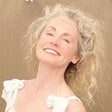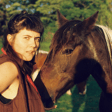
Save the World by Becoming the World with John Seed
Can birdsong heal your hearing? Can a rainforest recruit humans to protect it? What is deep ecology, anyway?
Of all the approaches to “saving the world”, this one has my heart. Join me in conversation with elder John Seed as we get to the marrow of the environmental crisis, from the illusion of separation between human beings and nature, to the rituals, ceremonies and stories that can heal it.
About John Seed
Just last year at age 79 John was arrested for strapping himself to logging machinery in the Bulga State Forest, and has been awarded the Order of Australia medal for his services to the environment. John launched the Rainforest Information Center, has initiated global rainforest action networks and campaigns, developed The Council of All Beings with Joanna Macy, co-authored Thinking Like A Mountain with Joanna Macy Pat Fleming and Arne Ness, and spent decades facilitating experiential deep ecology workshops.
IN THIS CONVO
John’s story of being called into service by Nature
Collaborating with Joanna Macy
The root of the planetary crisis
Community therapies to heal civilisational wounds
Business As Usual, The Great Unravelling, The Great Turning
The Work That Reconnects
Activism as ceremony
The antidote to cultural amnesia
Why John loves podcasts!
How not to judge gross human behaviour
Honouring our pain for the world
Feelings as ancient intelligence
Can anyone run a grief circle?
The council of all beings
The cosmic walk
🧙♀️ LINKY POOS
The Rainforest Information Center
[read online] Thinking Like A Mountain by John Seed, Joanna Macy, Pat Fleming & Arne Ness
🧡Support Reskillience on Patreon🧡
Field recording credit: Thrushes, golden whistlers, yellow faced honeyeaters and a spotted marsh frog by Afro408 License: Attribution NonCommercial 4.0



















